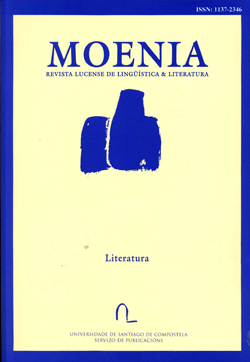Al publicar en Moenia, el/la autor/a-los/las autores/as cede/n todos los derechos de explotación de su artículo (incluyendo distribución, comunicación pública, reproducción y transformación) a la Universidad de Santiago de Compostela, que, con las condiciones y limitaciones dispuestas por la legislación en materia de propiedad intelectual, es la titular del copyright y, por tanto, de todos los derechos patrimoniales expresados, reteniendo el/la autor/a-los/las autores/as todos los derechos morales que por ley le corresponde/n (art. 14 TRLPI).
Sin perjuicio de lo anterior, y salvo indicación contraria, todos los contenidos se distribuyen en acceso abierto bajo una licencia internacional Creative Commons BY-NC-ND 4.0. Cualquier forma de reproducción, distribución, comunicación pública o transformación de esta obra no incluida en la licencia Creative Commons BY-NC-ND 4.0 sólo puede ser realizada con la autorización expresa del titular del copyright, salvo excepción prevista por la ley. Puede acceder Vde. al texto completo de la licencia en este enlace: https://creativecommons.org/licenses/by-nc-nd/4.0/deed.gl






